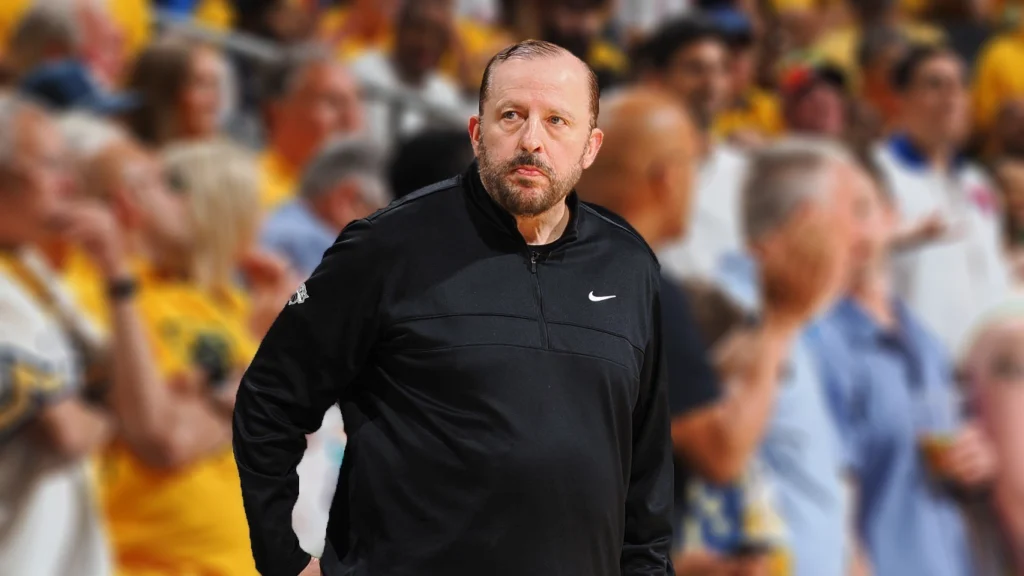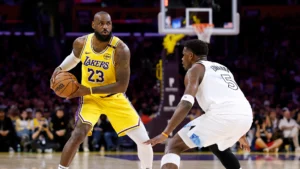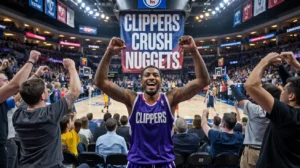
The basketball world reeled Tuesday as news broke: Tom Thibodeau, the architect of the New York Knicks’ improbable renaissance, was out. Just three days after guiding the franchise to its deepest playoff run in a quarter-century, culminating in a hard-fought Eastern Conference Finals loss to the Indiana Pacers, the Knicks front office delivered a stunning verdict. The decision to dismiss Tom Thibodeau, particularly in light of the team’s undeniable progress, has ignited a firestorm of debate, leaving many to question the very definition of success in the hyper-competitive NBA.
Under Thibodeau’s demanding, no-nonsense tutelage, the New York Knicks transformed from a perennial laughingstock into a legitimate force. Arriving in 2020, Thibodeau inherited a team adrift, but his unwavering commitment to defense, effort, and accountability quickly bore fruit. In his inaugural season, he not only steered the Knicks to a surprising playoff berth but also earned the coveted NBA Coach of the Year award, a testament to his immediate impact. This wasn’t a fleeting success; the Knicks consistently competed, making the playoffs in four of his five seasons at the helm. This consistency, coupled with back-to-back 50-win seasons – a feat not accomplished by the franchise since the iconic 1990s Patrick Ewing era – painted a picture of a team on an upward trajectory. The recent run to the Eastern Conference Finals, a stage not graced by the Knicks since 2000, felt like the culmination of Thibodeau’s vision, a tangible reward for years of meticulous rebuilding and strategic player development.
However, beneath the surface of statistical success and playoff glory, whispers of discontent and philosophical differences apparently simmered. President Leon Rose, in a statement that sent shockwaves through the league, asserted that the organization is “singularly focused on winning a championship” and believed it was necessary to “move in another direction” to achieve that ultimate goal. This cryptic reasoning points to deeper underlying issues beyond mere win-loss records. Thibodeau’s well-documented coaching style, characterized by his rigorous demands and a penchant for heavy minute loads for his starters, has always been a double-edged sword. While it instilled a formidable toughness and discipline in his teams, it also frequently sparked concerns about player fatigue and, crucially, a perceived lack of development for bench players. In the crucible of the playoffs, as starters battled injuries and exhaustion, the reliance on a relatively thin, less experienced bench became a glaring vulnerability.
Furthermore, critics within and outside the organization frequently pointed to Thibodeau’s perceived inflexibility in his offensive schemes and player rotations. While his defensive identity was undeniable, some argued that the offensive system lacked the necessary creativity and adaptability to unlock the full potential of a talented roster, particularly in maximizing the versatility of players like Karl-Anthony Towns, who joined the team in a blockbuster trade. The notion that Thibodeau was unwilling or unable to evolve his coaching philosophy, especially in an NBA increasingly prioritizing dynamic offenses and fluid rotations, may have ultimately sealed his fate.
The reaction to the news that Tom Thibodeau was fired has been largely one of disbelief and strong opinion. Key players, including the team’s heart and soul, Jalen Brunson, and defensive stalwart Josh Hart, publicly voiced their unwavering support for Thibodeau after their playoff exit, highlighting the strong bond he forged with his players. This makes the front office’s decision even more perplexing to many, who view it as a rash move that undervalues the stability and progress Thibodeau painstakingly built. From a contractual standpoint, the situation is also financially significant; Thibodeau had only just signed a three-year extension last summer, set to run through the 2027-28 season, reportedly owed over $30 million.
As the Knicks now embark on their search for the 32nd head coach in franchise history, the pressure to deliver an immediate championship will be immense. The next leader will inherit a strong core, a dedicated fanbase, and a front office with seemingly unwavering championship aspirations. However, the shadow of Tom Thibodeau’s sudden dismissal will undoubtedly loom large, serving as a stark reminder of the unforgiving nature of professional basketball and the delicate balance between success and perceived ultimate triumph. The question now is not just who will replace him, but whether the Knicks’ bold gamble to move past Tom Thibodeau will ultimately pave their path to championship glory, or if it will be a decision they come to regret.

